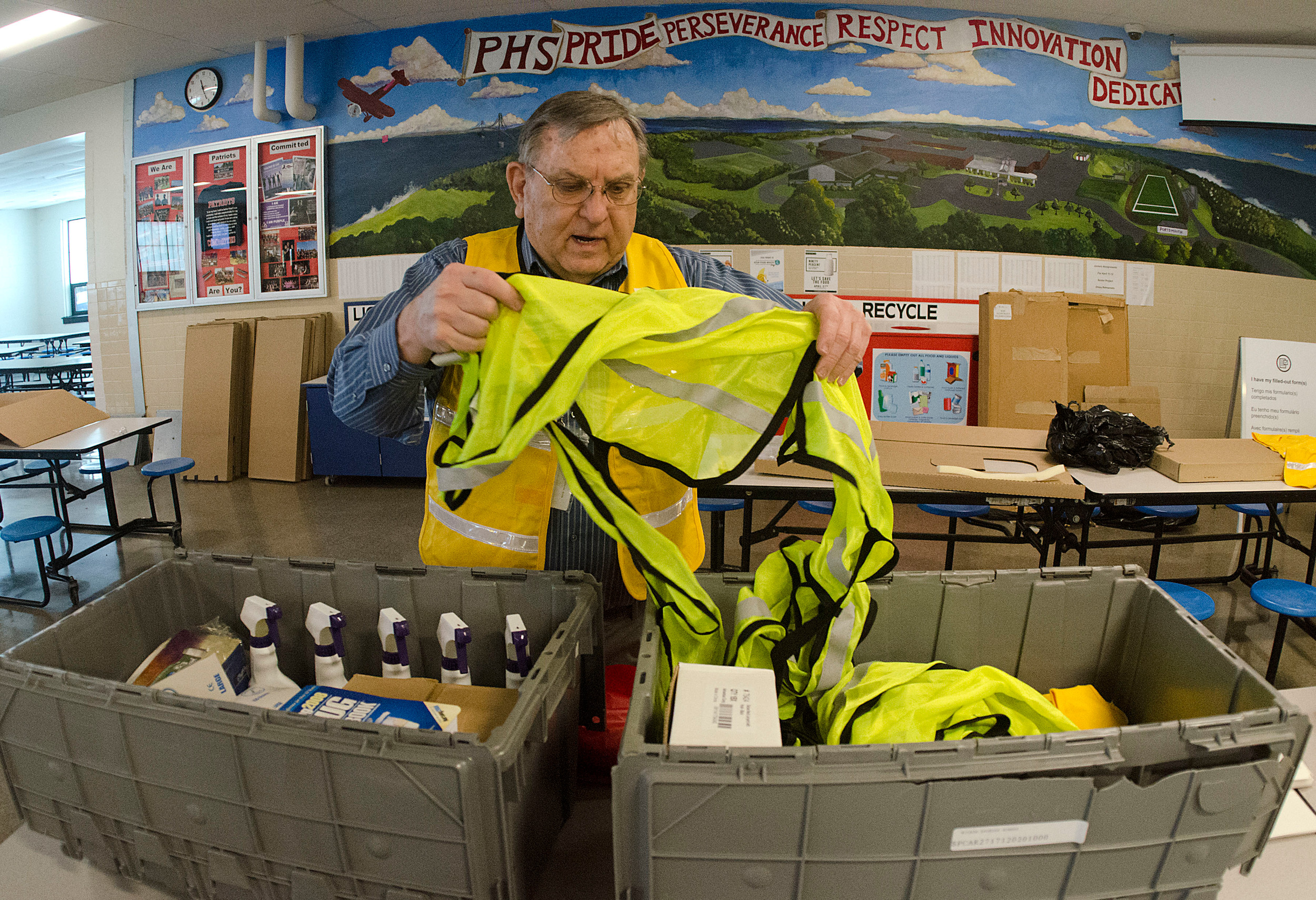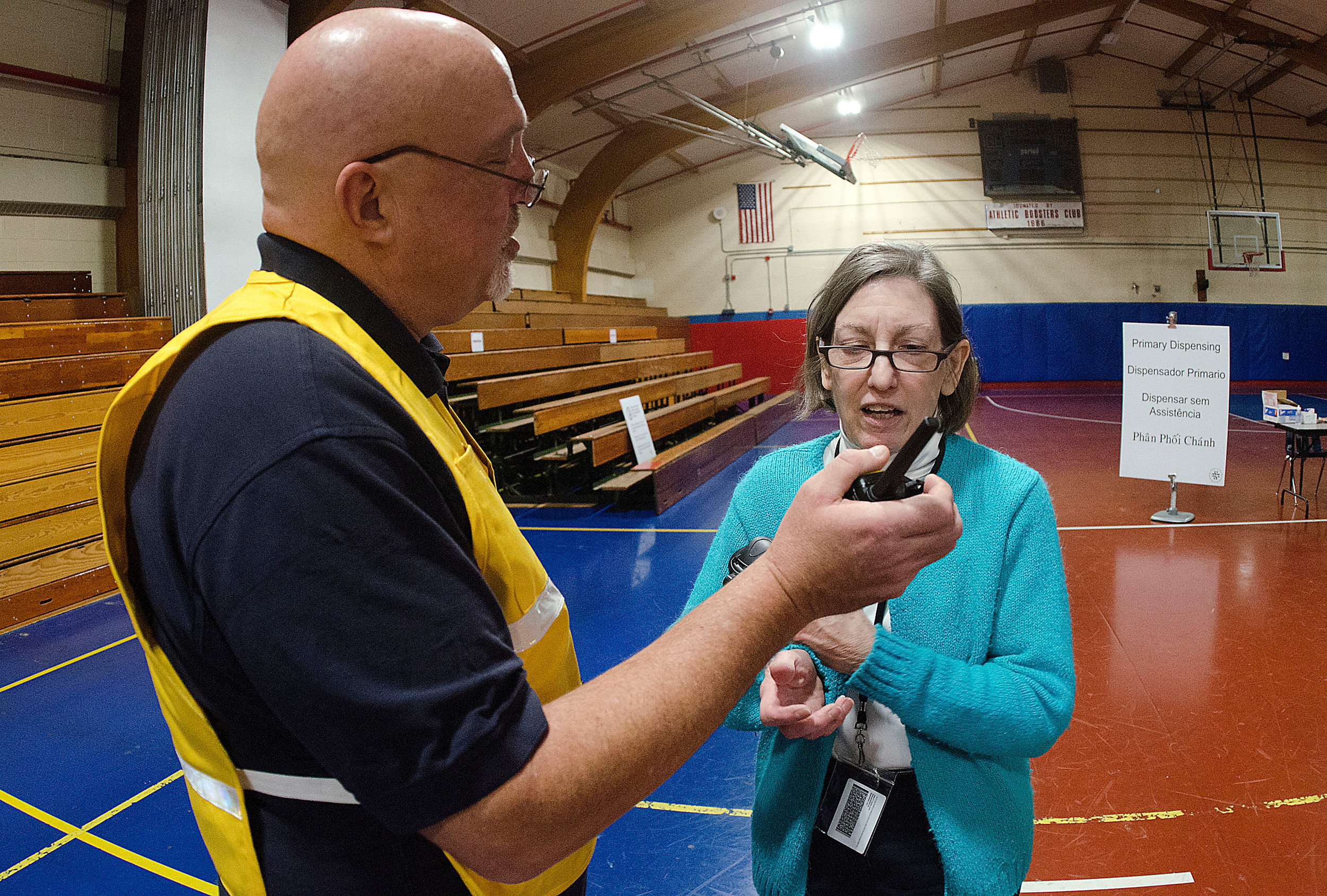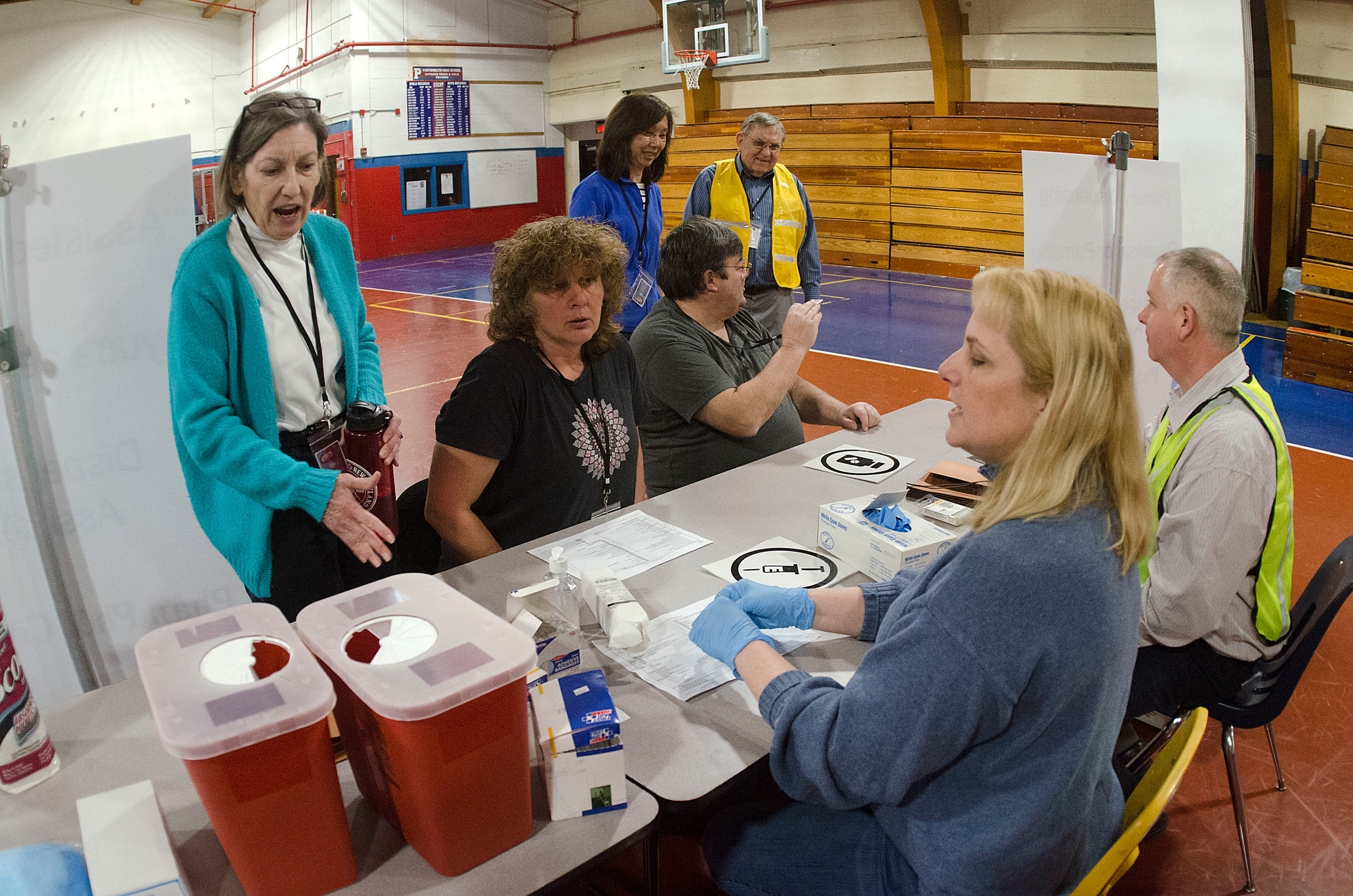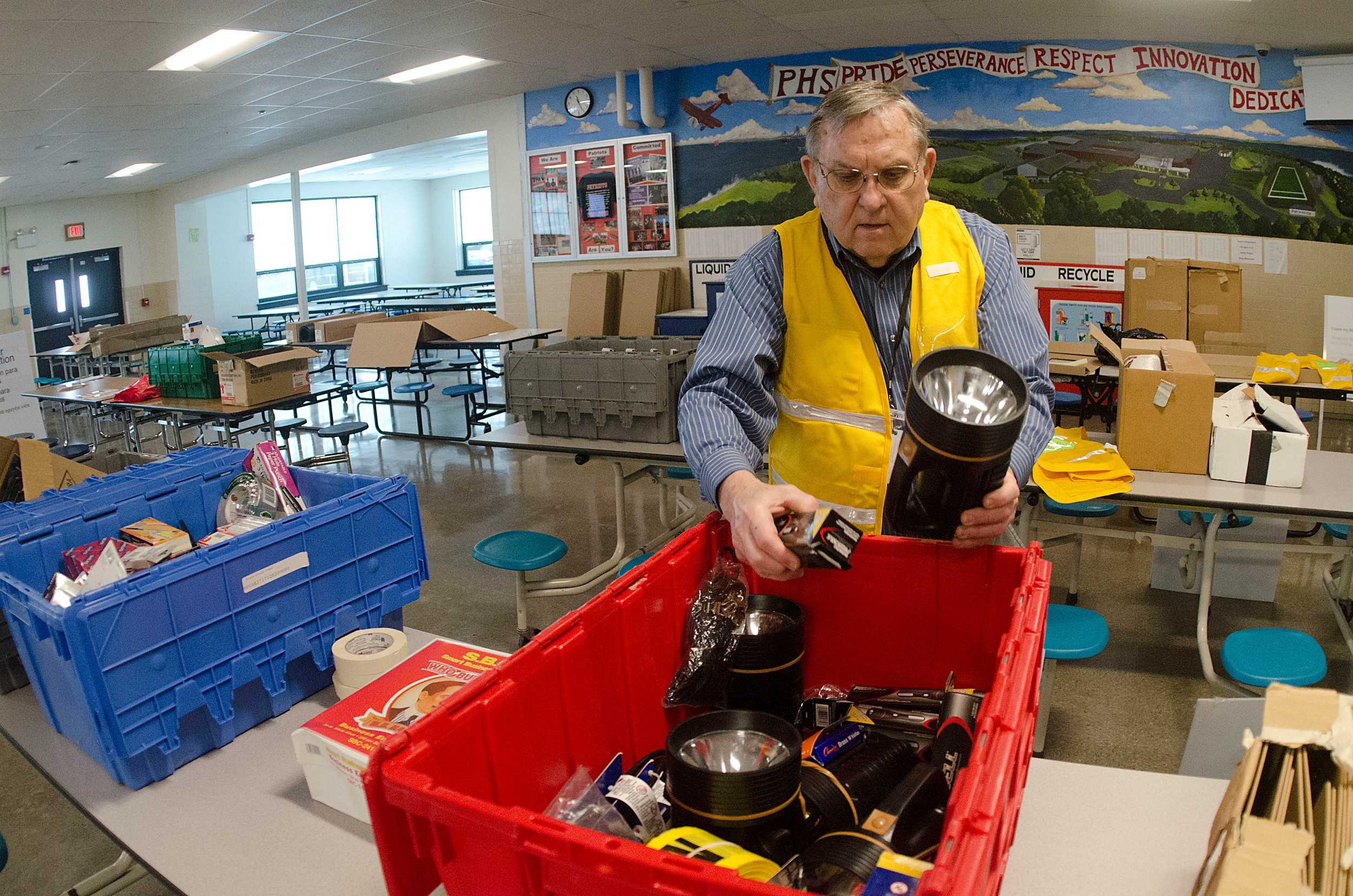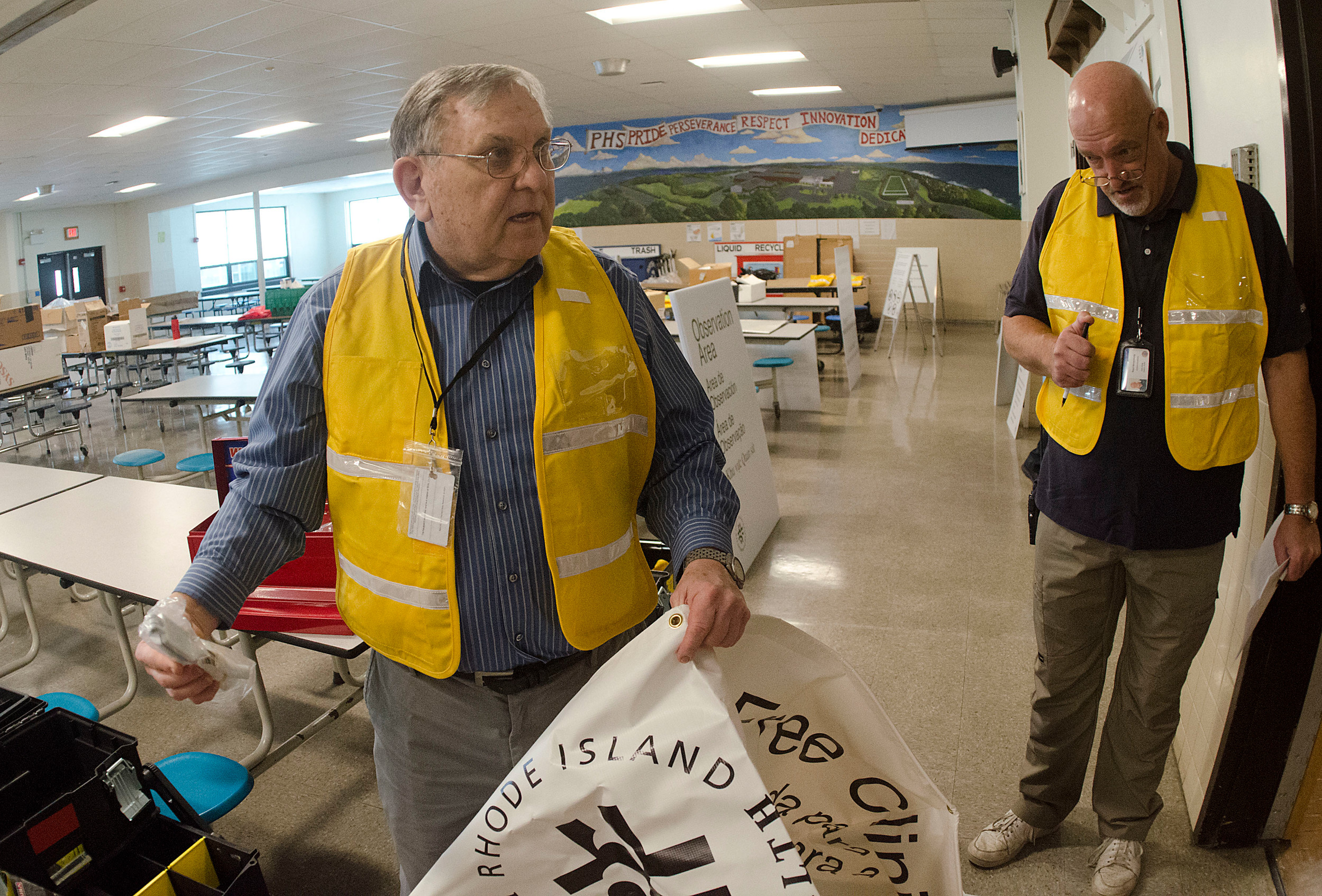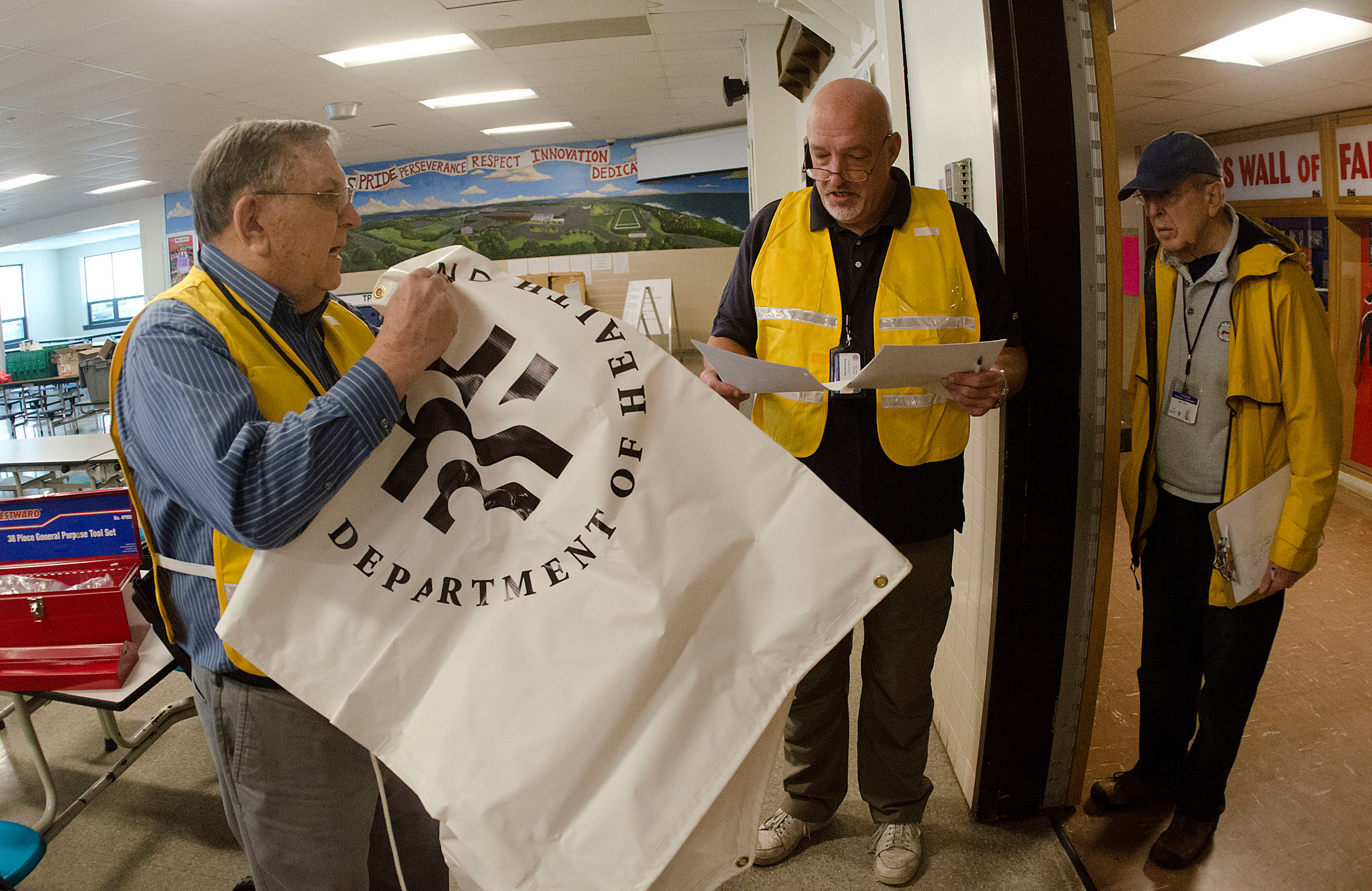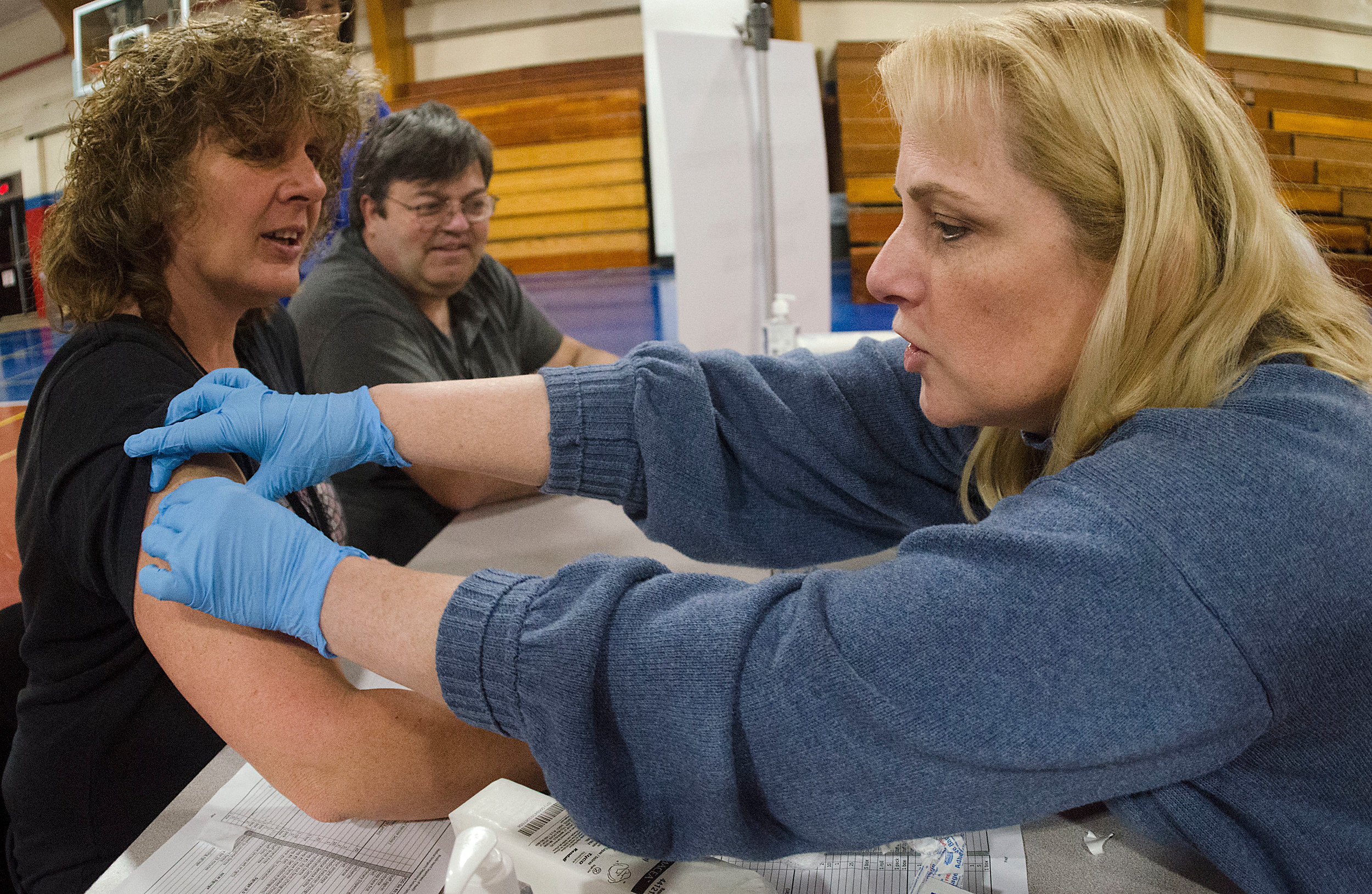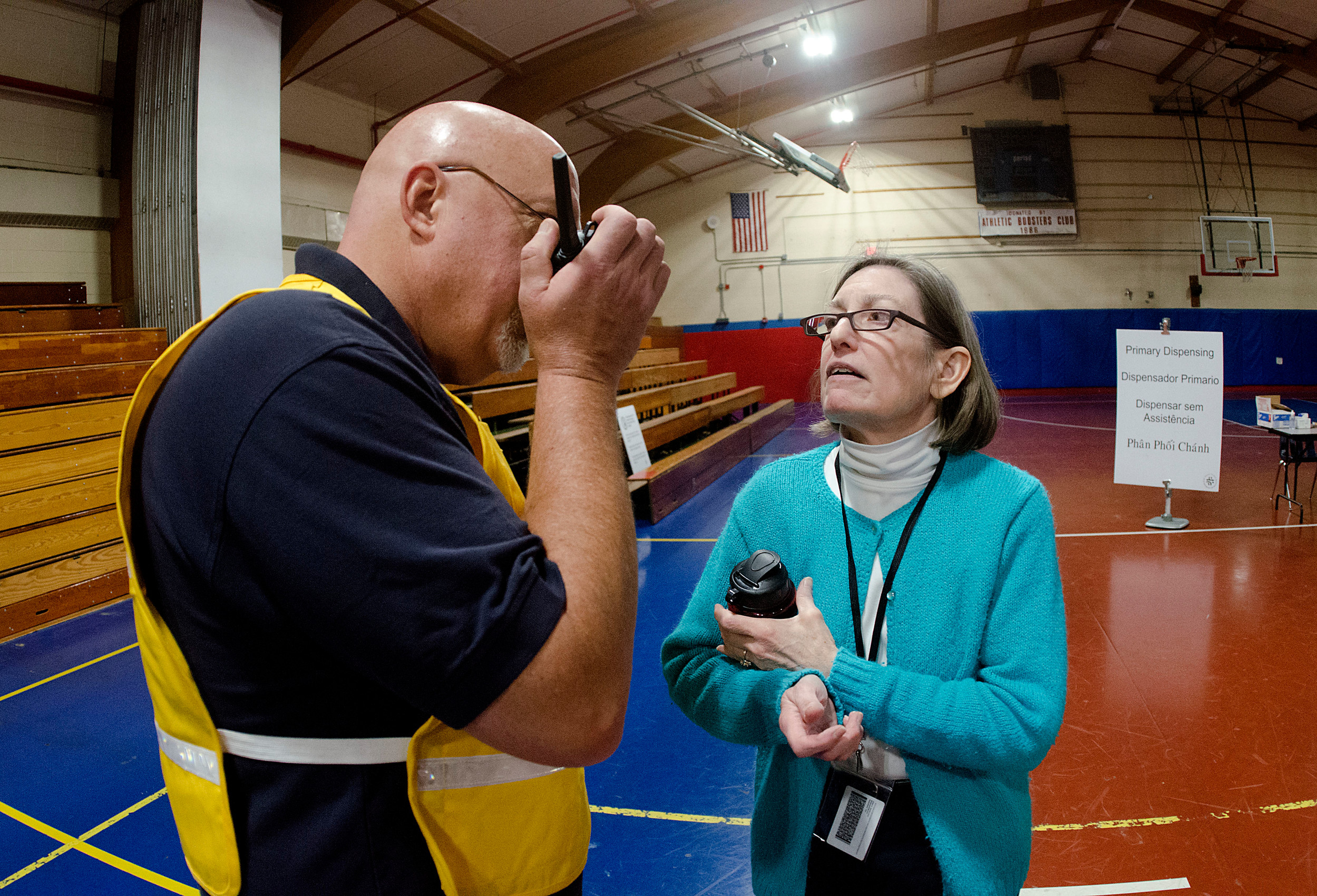- FRIDAY, MAY 3, 2024
In Portsmouth, preparing for a worst-case scenario
Town runs medical distribution drill at the high school
PORTSMOUTH — Town workers and volunteers gathered at Portsmouth High School Friday to prepare for something they hope never happens: a town-wide pandemic or other medical …
This item is available in full to subscribers.
Please log in to continue |
Register to post eventsIf you'd like to post an event to our calendar, you can create a free account by clicking here. Note that free accounts do not have access to our subscriber-only content. |
Day pass subscribers
Are you a day pass subscriber who needs to log in? Click here to continue.
In Portsmouth, preparing for a worst-case scenario
Town runs medical distribution drill at the high school

In addition to town staff, about 60 people have signed up to be medical emergency distribution system (MEDS) volunteers and Rich Talipsky, the program’s coordinator, regularly checks their availability.
“To man the whole thing we’d need about 60 people for one shift, but we need more for additional shifts,” he said.
While there are volunteers with valuable skill sets — such as Dr. Carol Ryan and a pharmacist — most volunteers are “just regular” people who are trained as they go, Mr. Talipsky said.
There’s a big incentive for becoming a volunteer, he said: You and your family go to the head of the line for medication whenever the point of dispensing (POD) is activated.
“One of the hardest parts is just recruiting volunteers to help us, but Rich has done a great job,” said Fire Chief Michael Cranson.
If you’d like to be on the town’s list of MEDS volunteers, contact Mr. Talipsky at 401/643-0382 or rtalipsky@portsmouthri.com.
PORTSMOUTH — Town workers and volunteers gathered at Portsmouth High School Friday to prepare for something they hope never happens: a town-wide pandemic or other medical emergency.
First responders, members of the Portsmouth Emergency Management Agency, medical professionals and others exercised its medical emergency distribution system (MEDS) that’s designed to establish a point of dispensing (POD) for the town as quickly as possible.
“If there’s some kind of mass medical emergency announced by the Centers for Disease Control (CDC) or the Rhode Island Department of Health (RIDOH) — anthrax contamination or some kind of special flu strain — we need to medicate the people as quickly as possible as a prophylaxis,” said Rich Talipsky, the town’s MEDS coordinator. “This isn’t to treat people that are symptomatic; this is to treat as much of the entire population to prevent them from getting sick.”
In the event of a real medical emergency such as a major flu pandemic or anthrax attack, RIDOH would order the POD activated and residents would be ordered to report to PHS — the middle school is the alternate site — through the Code Red system, social media and news reports.
“The state provides us with medical supplies like pills and injections — whatever we need — from (CDC). The Department of Health will say, ‘Give a pallet full of medication to Portsmouth’ and they’ll bring it here,” Mr. Talipsky said, pointing to an outside door to the PHS cafeteria.
Added Fire Chief Michael Cranson, “The country has strategically placed stockpiles of different medications just for these types of events. Our State Police would go and pick up the medication from the hidden place and they would deliver it here.”
A volunteer staff pharmacist would then check the medication before it’s brought to the dispensing area in the old PHS gym. There will be 24 dispensing stations set up in the gym, although only two were required during Thursday’s exercise. People who are already sick would be separated out from the others at the entrance to the school and treated by staff medics in a different area of the building.
Under RIDOH rules, the town must be able to staff and set up its “MEDS PODs” and start admitting residents within six hours.
“And then, after that, you have to get the entire town through here in 48 hours. This entire thing last no longer than 72 hours, start to finish,” said Mr. Talipsky. “If you can understand the magnitude of bringing the entire population of Portsmouth (about 17,000 people) through this building in 48 hours, it’s almost mind-boggling to do that. Crowd control is a big thing.”
Thursday’s exercise, one of three the town does every year, was to demonstrate the MEDS’ setup capabilities. (Citizens were welcome to view the drill during an open house from 11 a.m. to noon.) All supplies were taken out of a container behind the school building and laid out on tables inside the cafeteria.
”It includes signage, gauze pads — everything we need that isn’t the specific medication,” said Mr. Talipsky, noting the items are provided to the team from RIDOH through national funding. The team also received $3,000 for this drill, and $200 each for two smaller drills held throughout the year. “Every town is required to do that to get their funding for the year.”
Chief Cranson said the setup drill serves a valuable purpose for volunteers and town staff.
“It’s good to take all of the equipment out, look at it, set it up, and just refresh ourselves. We do some peer review and walk through the entire thing and identify weaknesses and strengths. Every time we do that, we find something new,” he said.
Communication is key
Paul Silverzweig, communications unit leader for the Portsmouth Emergency Management Agency, agreed. “Whatever exercises you can do, like this one, you can never have too many,” he said.
Not surprisingly, Mr. Silverzweig said keeping the lines of communication open is crucial during an emergency. As a relief volunteer with the Red Cross and the Federal Emergency Management Agency, Mr. Silverzweig spent five months in Puerto Rico after Hurricane Maria devastated the island last September.
“There was no communication; every cell tower was down. Radio communications was also down. There was nothing,” he said. “Communications systems need to be functional.”
While he doesn’t believe Portsmouth faces the same types of communication challenges during an emergency as does Puerto Rico, he’s not talking any chances. On Thursday Mr. Silverzweig handed out walkie-talkies to “key players” on the team to be used in the event that cell phone communication is interrupted during the real thing.
Likelihood of medical emergency?
One of them was Carol Ryan, a retired physician who serves as the POD’s medical director. She said while an anthrax attack may be less likely to happen here, the local area could eventually face something considerably more serious than the 2009 swine flu, also called pandemic H1N1.
“The thing the CDC and the infectious disease community is worried about is another 1918 flu — the equivalent of a bird flu — and now there are two different types,” Dr. Ryan said. “They’re afraid that one of these bird flus will pick up a gene that allows them to be easily communicable from person to person. That’s how they change and that’s how a pandemic starts.”
The area could also be hit with something similar to SARs, a coronavirus with a high fatality rate, she said. “All these things are possible. We’ve had things popping up in the last 10, 15 years that come out of nowhere,” said Dr. Ryan.
Fortunately, the vaccine for a bird flu already exists, so it could be distributed right away, she said. However, a duplicate of the 2009 swine flu pandemic — while considerably less lethal than the 1918 flu — would have its own challenges, she said.
“It started in April but the vaccine wasn’t available until December or January because it takes so long to produce,” said Dr. Ryan. “That’s the problem. If we have something like that, we won’t be able to do anything in 24 hours because we’re not going to have any vaccine to give.”
Whatever challenges it will face however, Chief Cranson said Portsmouth is “absolutely” prepared in the event of a real town-wide medical emergency.
“We’ve set this up in real life and have used this model and layout at the high school, and it works,” he said.
Keywords
Portsmouth Emergency Management Agency, Portsmouth High School, MEDS PODs, Portsmouth Fire DepartmentOther items that may interest you

